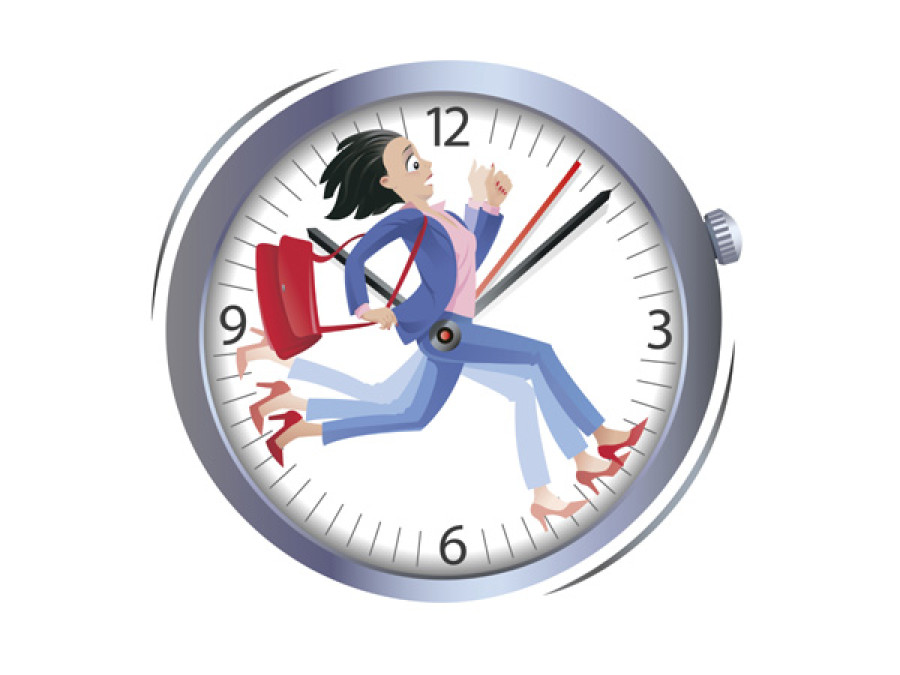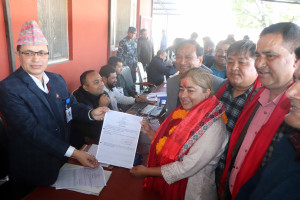Entertainment
Time contraints
If there’s one thing in the world that I hate the most it is time constraints.
Binam Poudyal
If there’s one thing in the world that I hate the most it is time constraints. Whether it be an examination, or a competition with a time limit—it is this time factor that always lets me down. I always get time pressured.
For example, last week we had a Further Mathematics grade test. Although I’m not someone who’s particularly brilliant at math, I’d promised myself that I’d work hard and improve so that my grades in math wouldn’t create a problem to get into the Principal’s merit list. So work hard I did, day and night. I focused on my math homework, practicing regularly for hours and hours, even relinquishing my sleep, my play time and my hobbies.
And so when the time came for the grade tests, I was hoping that I’d do well. I glanced at the question paper and lo and behold! Those were the easiest questions I could’ve imagined—questions that I’d already practiced at home. I was bound to get good scores. There was no way I couldn’t do well.
Alas, I couldn’t do well; at least not as well as I expected—given the effort I had put in, given how easy those questions were. And there is only one reason for it. Although I knew the answer to each and every question, I couldn’t finish the questions on time. No matter how hard I work, no matter how much I know, in the end time always lets me down.
Now you might say that I’m venting my frustrations towards my own inability to manage time well. Yes, it’s true, but my annoyance is towards the fact that it should even matter. After all, my results will be used to judge how good I am at a particular subject—and in the eyes of my parents and teachers— how well I’m studying. But as you can see, these time constraints that have been placed into our system judges me not on the basis of how much I know—but on the basis of how fast I can think. And this, I think, is unfair. It’s like holding a competition for determining the best scientist in the world—and then judging on the basis of how many problems he/she can solve in an hour. Secondly, having time constraints is unfair because it is disadvantageous to those who think slow—those who like to dwell in the details of things—who like to dissolve into the environment and think slowly, think deeply, and think from all angles before addressing a problem. That’s just the way some of us are, and this way of thought does have many benefits when it comes to creative thinking. Some of us are simply inclined to it, and when it comes to real life situations, this pattern of thought actually helps us to solve problems and create artistic innovations. So why should our system discourage such way of thought when it comes to examinations? Why should time constraints be an obstacle for people like us?
What I believe is, in the real world, it’s not so much of speed, but the end product that matters. An artist that creates a masterpiece after days and months of work is still
a better artist than the one who produces a good but not so fabulous piece under an hour. A scientist
will be judged, not on the basis of how fast he discovers something but on the
basis of what he discovers. Of course, I don’t mean to say that there should be no time constraints at all. After all, the real world is full of deadlines. Even life has a deadline to it. However, even life offers reasonable deadlines. Life didn’t force Shakespeare to write Hamlet within an hour, or force Pythagoras to prove his theorem in a single day. But most importantly, life didn’t judge them on the basis of how fast they were.
So when it comes to examinations, I think there should be a time limit—but this time limit should not be self-suffocating. Students should be allowed to think clearly, taking their time as they would like—doing things at their own pace. Only then will our exams be the true reflection of our hard work and knowledge rather than a measure of our speed. Only then will we be rewarded for being who we are—for what we do—for how much we struggle to be who we are.
Poudyal is an A levels student at Budhanilkantha School




 16.12°C Kathmandu
16.12°C Kathmandu










